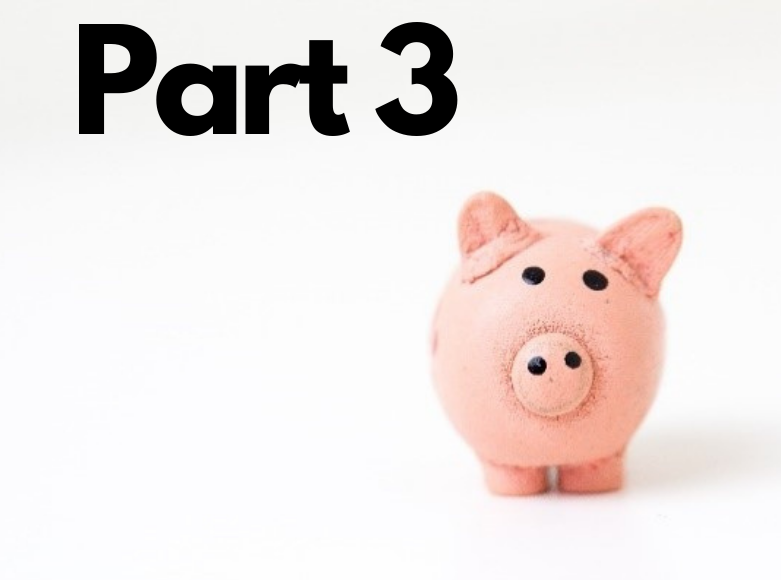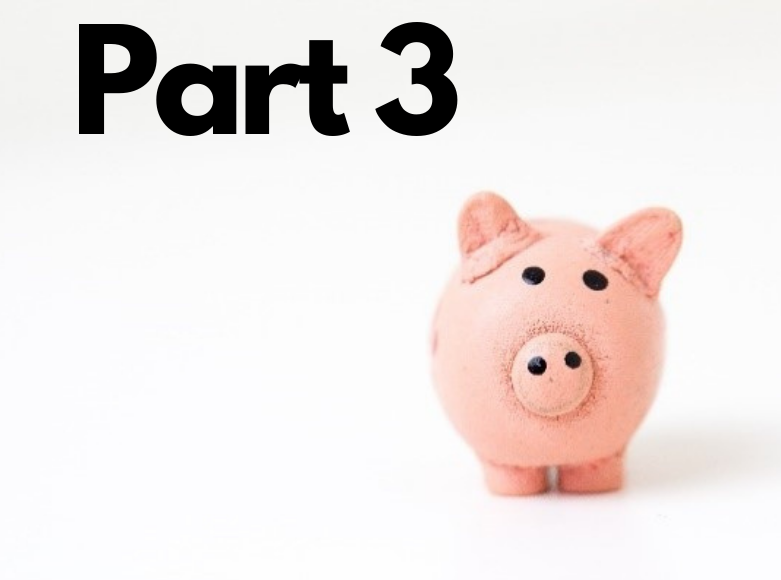
This post is part 3 of the ‘Introduction to saving’ series and to recap:- Part 1 covered the idea of saving and made a case for its necessity in meeting your financial goals;- Part 2 explored the ‘How’ of saving and discussed how much to save as well as an approach to categorizing your savings;- Part 3 is the final installment which gives information on savings options available in Nigeria.
Where to save
The options and opportunities for saving are wide and range from low to high tech, low to high return and low to high risk. Here are some options:
Under the bed 10/10 for ease and simplicity but this is a risky way of saving especially as the amount you save grows. You are already familiar with time value of money and inflation and in this scenario both are relevant as you lose the opportunity to make ‘money from your money’. Put your money under the bed or outside a savings vehicle and you have lost the opportunity to make a return on the funds. Another good reason to reject an ‘under the bed’ savings plan is to that the money is not secure and is at risk from theft, deterioration (many of us are dealing with damp at home!) plus news reports in Nigeria also show that reptiles have a tendency to consume money 😊.
Peer to peer savingsEsusu or Ajo has been in existence for a long while and is a recognised informal way of saving. Esusu can work well amongst groups of likeminded or connected individuals who know each other and have established a bond of trust to ensure repayment. Let’s use an example with 5 people:- 5 friends form an esusu group and decide that they each want to receive ₦250,000 from the arrangement. – To achieve this, each member of the group will need to pay ₦50,000 into the esusu pool every month for 5 months and decide on who receives the money every month – one member per month.- Every month each member pays ₦50,000 to the account of the individual that is due to receive the payout for the month.- The cycle continues until the 5 months is over and everyone gets their ₦250,000 payout.So far so easy. As identified before, trust is a big factor and also the money paid does not bear any interest. The benefits are a lump sum so this is particularly useful if you have a particular goal amount that you want to make at a specific time. From a risk perspective, being first on the list for payout is also advantageous. By putting money aside monthly you also develop a savings habit.
Bank savings accountTraditional bank savings accounts are accessible and convenient but suffer principally because they do not pay you anything near inflation (Nigeria inflation rate is 11.37% as at April 2019). This means that there is a cost to the level of safety and convenience that Banks provide and if you want to earn more returns, you will need to take more risk. The big benefit of saving with Nigerian banks is that deposits are insured by the Nigeria Deposit Insurance Corporation (NDIC) which means that all or part of your deposit will be returned if a bank goes into liquidation. Coverage varies according to the type of Bank:Microfinance banks: ₦200,000Deposit money banks:₦500,000Primary mortgage banks ₦500,000Payment service banks: ₦500,000I recommend that your ‘rainy day’ savings be partly / fully Bank based given that the money acts as an emergency fund and you need to access it quickly when a rainy day arrives. You may also find that Microfinance banks are able to provide higher rates of interest than Deposit money banks so it is worth shopping around to see what rates are available. Money market fundsA money market fund is a type of collective investment scheme or mutual fund that is invested in highly liquid securities. Mutual funds are regulated by the Securities and Exchange Commission which sets rules for the funds including what they can invest in – all aimed to ensure that investors are protected. The securities are all short term (less than 90 days) which makes money market funds more liquid i.e. closer to cash than other mutual funds. They earn higher returns than bank accounts and provide quick access to your cash after an initial period. Money market funds are actually classified as an investment but because of their qualities they can be used to save money and earn higher returns than a traditional bank savings account. Federal government of Nigeria (FGN) savings bondsFGN savings bonds were introduced in 2017 and are a retail savings product that aims to facilitate a savings culture in Nigeria. They provide citizens of every income level an opportunity to be patriotic, by lending to the government, and earn decent returns on their money for little to no risk given that FGN is ‘risk free’. What’s to like? Minimum ₦5,000 investment which gives you access to higher rates than typical bank accounts: – 1st savings bond in March 2017 offered 13.01% for a 2 year bond. – June 2019. 2 year bonds offered at 11.418%; 3 year bonds at 12.418%Savings bonds are issued every month and interest is paid direct to investors every quarter. The bonds can be purchased through a stockbroker so investors need to sign up with one in order to invest. Similar to money market funds this is a capital market product offering better returns without high risk. As the minimum tenor is 2 years, these are suitable for longer term or targeted savings. At the end of the tenor your capital ie the sum invested is repaid.
Fintechs‘Fintech’ is a combination of the words ‘Financial’ and ‘Technology’ and describes companies that use technology to provide financial solutions and services. A number of Fintechs in Nigeria are offering savings and investments products which can be a compelling option as they are usually innovative and customer friendly. The products offered have a variety of features that make it easy for you to save including automatic debit from your bank account, saving through payment agents, lockdown of the money until a certain withdrawal date, accessibility through apps etc. Additionally they may also offer higher rates on savings than some bank accounts. You will need to do your research as some Fintechs are not subject to regulation by the Central Bank of Nigeria(CBN) or the Securities and Exchange commission (SEC) so putting your money with them poses a bigger risk than doing so with institutions that are regulated.
When all is said and done
Ultimately all the knowledge and information in the world does not substitute for starting. I have not always been consistent with saving money – life happens and there can be times when competing needs have to take priority over saving and building a financial buffer. What counts though is getting back on track when you can and keeping your eye on the prize. All the best on your savings journey.
Thanks for listening!

